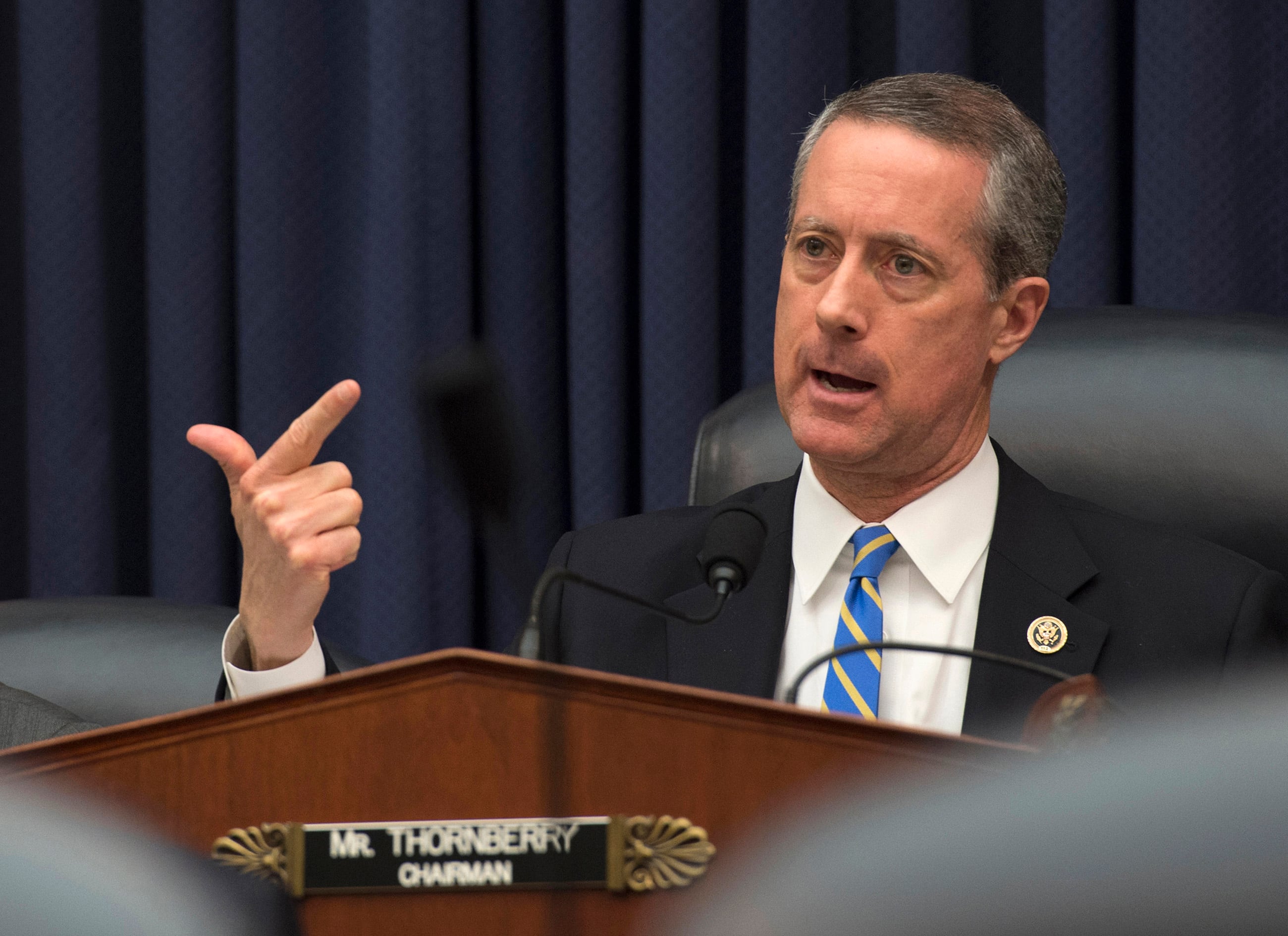The U.S. strategy in battling the Islamic State is not to achieve victory, but to "just avoid disaster," the chairman of the House Armed Services Committee said.
"I think what you've seen is the president just slowly dialing up the pressure: A few hundred more people; a slight relaxation of the rules on when they can drop bombs," said Rep. Mac Thornberry. "It's not really to win."
The Texas Republican spoke with reporters from Military Times and the Washington Post Thursday for C-SPAN's "Newsmakers," which airs on Sunday. He said that the Islamic State group, also known as ISIS, is metastasizing despite the stated U.S. goal to defeat it.
"There has been success on the ground in Iraq and Syria but the rest of the story is ISIS is spreading out to more countries than ever before," Thornberry said. "So it's not even very successful in containing them geographically and I think, in some ways, they are growing more dangerous."
Despite the growing menace, defense spending has been cut by 23 percent since 2010, and that has hurt readiness,Thornberry said. The Pentagon's budget has become a "political football," he said.
"Too often some people on the Republican side don't want to increase spending at all for anything; people on the Democratic side only want to increase defense if you can increase an equal amount on the domestic side, and who's caught in the middle? It's the men and women who serve," he said.

House Armed Services Committee Chairman Rep. Mac Thornberry, R-Texas speaks during a March 18, 2015, hearing on Capitol Hill in Washington.
Photo Credit: Molly Riley/AP
Thornberry said he has been alarmed by a spike in fatal aircraft accidents for both the Army and Marine Corps. In September, Marine aviation deaths reached a five-year high. Then two CH-53E Super Stallions crashed in January, killing 12 Marines.
While he has not been briefed on the investigation into the CH-53E crash, Thornberry said the recent trend of crashes show that "something is drastically going wrong."
"Lives are exactly what's at stake here," he said. "It's not just a matter of budget numbers or political leverage. When they don't get the training; when the aircraft are not maintained, it is lives. That's why I feel strongly about it."
When he talks to service members about how budget cuts have affected their lives, Thornberry can hear their frustration, he said.
"I talk to pilots who don't have the aircraft they need when they're about to deploy in a few weeks," he said. "I talked to mechanics about working seven days a week, long hours, never seeing their kids and they feel like they're deployed overseas when they're right here at home.
"I've talked to a top pilot for one of the services who's leaving the service — loves what he does — but he doesn't think the aircraft he flies are safe anymore and he's got two young kids at home."
The cumulative effects of budget cuts and non-stop deployments are taking a heavy toll on service members, Thornberry said.
"We've been asking more and more of these folks and I'm afraid we're reaching the breaking point," he said.




